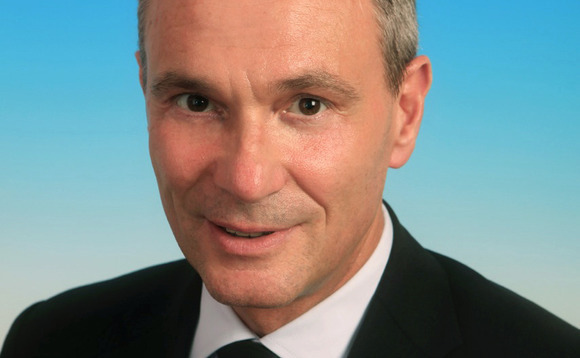
LP Profile: Assicurazioni Generali

Insurance firm Assicurazioni Generali's head of private equity investments, Bruno Sollazzo, speaks to Sofia Karadima about the group's investment programme, its commitment to ESG and plans for 2019
Click here for a full profile of Generali on Unquote Data, including comprehensive fund investing preferences and history
Insurance group Assicurazioni Generali offers asset management, investment management and financial advisory services globally. The Trieste-based insurer invests in private equity, with broadly equal exposure to Europe, Asia and the US/global. Its multi-billion-euro private equity investment programme consists of around 75% investments in primary buyouts and direct co-investments, and around 25% in secondary investments.
"We mainly focus on the mid-market, because that is where there are possibilities to allocate good tickets and negotiate good co-investment deals," says Bruno Sollazzo, group head of private equity investments. "We prefer to avoid mega-funds, unless it is an exception in a market where we want to mainly diversify. We also use the secondary market."
Sollazzo adds that the LP commits to direct investments on an opportunistic basis, in line with its combined allocation strategy focusing on primary, co-investment and secondary funds, infrastructure equity and - to a lesser extent - venture capital. "Investing directly is quite time-consuming," he says. "Our team has experience in direct investing and each of us has made many M&A transactions, so we know the game. But as we need to allocate high volumes on an annual basis, we only go direct when we find good opportunities."
The insurer invests in approximately 25 funds per year, but it does not have a fixed target for the number of vehicles it commits to.
"The most important thing is to not fix into allocation rules in private equity," says Sollazzo. "It is very important to find the right manager with the right strategy and the right sector and geography. While we are strongly disciplined with respect to all the compliance and regulatory rules of our group, we try to avoid sticking to purely theoretical requirements such as sector or geography just to tick the box. This is one of the reasons the Generali private equity programme is so profitable, with a stable double-digit net performance after fees, because we search for the real opportunity within the market."
Sollazzo says all institutional investors would be well advised to invest in private equity, building competency and carving out opportunities in the private market. However, he says it is important to undertake professional due diligence of performance, track record, tax, legal terms and conditions, and co-investment agreements. "Investors may find good opportunities with low volatility and this is very important as volatility comes from the listed markets and frightens investors more and more," he says.
The insurer plans to keep investing in the mid-market throughout 2019, and sectors of interest include consumer, healthcare, education and industrials. However, the firm is not heavily invested in technology.
"Many investors opt for tech, but often they do not understand [the sector] and, in order to compensate, they invest in a highly diversified way, resulting in poor total net returns. To invest profitably in tech, you need experts in each tech sub-sector, which is very difficult to have in your team, so people use external consultants you cannot fully rely on. Tech is not our sweet spot, but in exceptional cases we invest in venture capital."
Co-investment pays off
Generali's ticket range is broad, reaching from €30-500m, including primary, co-investment and secondary allocations. It backs primary private equity funds of €400m-4bn.
"We started our co-investment programme 10 years ago, through dedicated transactions. When we signed our first co-investment agreement it was something rare in the market. Today, co-investments have been performing well. For these transactions, you need mid-market partners able to do their job on a fully-aligned legal basis and you need to avoid retaining too much relative exposure, potentially providing adverse selection. You need to typically retain a 1:3 ratio with respect to the fund exposure. It also depends on the geography."
Generali allocates a small amount to Italian private equity, but Sollazzo says there are opportunities in the country: "There are good entrepreneurial turnarounds in Italy. Competition is high and all the big names in private equity want to invest in Italy, as the country's real economic power comes from high-quality, small-medium enterprises."
Sollazzo says Generali values responsible investing and embraces ESG requirements as part of the strict compliance procedures driving any private equity investment. He also views ESG as one of the key drivers to profitability. "We set sophisticated ESG rules for private equity allocation and want to be respectful and strong in ESG in a bid to avoid any potential issues with our portfolio."
Key people
• Bruno Sollazzo is Assicurazioni Generali's group head of private equity investments. He has been running the Generali private equity programme for the past 10 years, during which time he has built the multi-billion global investment private equity portfolio of the European insurance firm.
• Ileana Bolcato is head of group private equity portfolio management.
• Francesco Cignolo is head of group private equity portfolio construction.
Latest News
Stonehage Fleming raises USD 130m for largest fund to date, eyes 2024 programme
Sponsor acquired the public software group in July 2017 via the same-year vintage Partners Group Global Value 2017
Stonehage Fleming raises USD 130m for largest fund to date, eyes 2024 programme
Czech Republic-headquartered family office is targeting DACH and CEE region deals
Stonehage Fleming raises USD 130m for largest fund to date, eyes 2024 programme
Ex-Rocket Internet leader Bettina Curtze joins Swiss VC firm as partner and CFO
Stonehage Fleming raises USD 130m for largest fund to date, eyes 2024 programme
Estonia-registered VC could bolster LP base with fresh capital from funds-of-funds or pension funds









